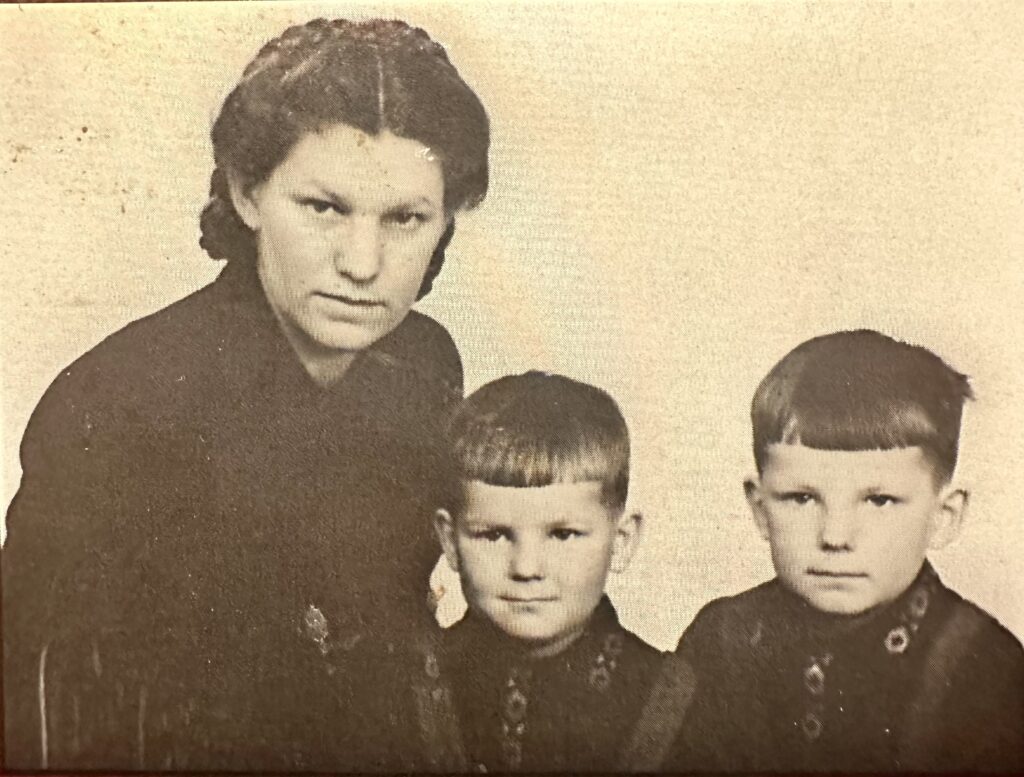Boats

Valda and her boys Juris, 3, and Valdis, 5.
A Refugee’s Story
In her 2009 memoir, Journey to Freedom, Valda Zvanitajs explains why she boarded the Sarabande in 1949 to Canada. Most of the Baltic refugees in Sweden had fled the advancing Red Army in the summer and autumn of 1944, but Valda did not leave until March 5, 1945, when she escaped with her two young sons on one of the last boats from Ventspils, Latvia.
Valda Zvanitajs’ experience in Sweden was common among Baltic refugees. She wrote:
“Living in Sweden, so close to the Russians, we sometimes felt their unwanted presence. In Stockholm, in broad daylight, two young Estonian children disappeared from a street. Two weeks later they could be heard on Tallinn radio, asking their parents to come home to them.
One day Vilis* was visited by a man dressed in the uniform of a Swedish police officer. He had a substantial notebook with a list of names, all Latvian.
“Are you Eduard Zvanitajs?” the man asked.
“Here’s my passport,” Vilis replied, showing the officer his Swedish passport where his name is shown as Vilis. He actually had two names, Eduard and Vilis, but all his life he had used Vilis as his first name.
The policeman persisted in asking if he were not the Eduard mentioned in the notebook, for even the date of birth coincided. Vilis again showed him his passport. The officer then asked him if he had a brother or cousin named Eduard. If was obvious that he was very interested in finding Eduard. Vilis maintained that, as his passport showed, he was not that person, and finally the stranger left.
The whole episode had seemed suspicious to Vilis, and he went to the local police state to find out what they wanted of him. The police officers were totally unaware of any from their office questioning him, and as far as they knew no other Swedish police officer from anywhere else had been there. The question arose then whether it was a Russian or a Swede working for the Russians who had been searching for Eduard. We were uneasy and began to think that it might be better to get as far away from this hostile neighbor as possible. However, emigrating to the United States or Canada at that time was still a complicated matter and very expensive.
Other Latvians had evidently been thinking the same way. Several enterprising men got together, bought a ship and planned an illegal voyage across the ocean, with the hope that once the refugee ship reached North America it would not be sent back, and they could remain there and start their lives anew.”
*Vilis was Valda Zvanitajs’ second husband. Her first, Antons Nadolskis, was captured by the Soviets trying to help Latvians escape and was sentenced to 10 years in a prison in Siberia. He survived but the family never saw him again. Vilis’ first wife and stepdaughter were also sent to Siberia. It is not known if they survived.
